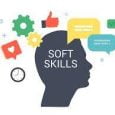
Introduction
Skills-based treatment is a powerful method for personal development that goes beyond traditional self-help approaches. It’s a structured process designed to help individuals identify, learn, and apply specific skills to overcome challenges and achieve personal goals. In this article, we’ll explore the intricacies of skills-based treatment, its core principles, and how it can be a catalyst for positive change in your life.
Understanding Skills-Based Treatment
At its core, skills-based treatment is about recognizing that individuals possess untapped potential. It’s the belief that with the right guidance and strategies, anyone can acquire the skills necessary to lead a more fulfilling life. This approach is rooted in psychology, education, and personal development, making it a well-rounded method for growth.
The Key Components
3.1 Identifying Targeted Skills
The first step in skills-based treatment is identifying the specific skills you want to develop. These could range from communication and problem-solving skills to emotional intelligence and resilience.
3.2 Customized Learning Plans
Once the target skills are identified, a customized learning plan is created. This plan outlines the steps and resources required to acquire these skills efficiently.
3.3 Guidance and Support
Skills-based treatment often involves working with a mentor or therapist who provides guidance and support throughout the journey. Their expertise is instrumental in helping individuals overcome obstacles.
Benefits of Skills-Based Treatment
4.1 Enhanced Self-Esteem
As individuals acquire new skills and achieve their goals, their self-esteem receives a significant boost. Success breeds confidence.
4.2 Improved Problem-Solving Abilities
Skills-based treatment equips individuals with the tools to approach challenges methodically, leading to improved problem-solving abilities.
4.3 Greater Resilience
Resilience is a key outcome of skills-based treatment. Individuals learn to bounce back from setbacks and adversity.
4.4 Enhanced Interpersonal Skills
Effective communication and empathy are often part of the skills cultivated during treatment, leading to better relationships.
The Process in Action
5.1 Initial Assessment
The journey begins with a comprehensive assessment to identify strengths, weaknesses, and areas for improvement.
5.2 Setting Achievable Goals
Clear, achievable goals are established, providing a roadmap for the journey ahead.
5.3 Skill Acquisition
This is the heart of skills-based treatment, where individuals actively learn and practice the targeted skills.
5.4 Regular Monitoring and Adjustments
Progress is regularly monitored, and adjustments are made to the learning plan as needed.
Real-Life Success Stories
To illustrate the transformative power of skills-based treatment, here are a few real-life success stories of individuals who have undergone this process and achieved remarkable personal growth.
Why Skills-Based Treatment Works
7.1 Individualized Approach
Skills-based treatment recognizes that each person is unique. The approach is tailored to the individual, increasing the likelihood of success.
7.2 Focus on Tangible Results
This method emphasizes tangible, measurable results, ensuring that progress is not just perceived but quantifiable.
7.3 Long-Term Benefits
The skills acquired through this treatment have lasting benefits, enhancing various aspects of life.
Who Can Benefit from Skills-Based Treatment
Skills-based treatment is not limited to a particular demographic. It can benefit individuals of all ages, backgrounds, and life situations.
Challenges and How to Overcome Them
While the journey towards personal growth through skills-based treatment is rewarding, it’s not without its challenges. We’ll explore common obstacles and strategies to overcome them.
Finding a Skills-Based Treatment Program
Discovering the right skills-based treatment program is crucial. We’ll provide guidance on how to identify a reputable program that aligns with your goals.
Preparing for Your Skills-Based Journey
Before embarking on your skills-based journey, there are essential steps to take to ensure a smooth and successful experience.
FAQs
- Is skills-based treatment only for individuals with specific issues?
- No, skills-based treatment is for anyone looking to enhance their skills and personal development, regardless of their starting point.
- How long does skills-based treatment typically take to show results?
- Can skills acquired through this treatment be applied in professional settings?
- Absolutely. Many of the skills learned are transferable and highly valuable in both personal and professional contexts.
- Is skills-based treatment a replacement for therapy or counseling?
- It can complement therapy or counseling but is not a replacement. Skills-based treatment focuses on skill acquisition, while therapy may address deeper emotional issues.
- What if I don’t have a specific goal in mind for skills development?
- That’s perfectly fine. A skills-based treatment program can help you explore your interests and identify areas for personal growth.
Conclusion
Skills-based treatment is a dynamic approach to personal growth that empowers individuals to unlock their full potential. By identifying, learning, and applying targeted skills, anyone can overcome challenges, enhance their self-esteem, and lead a more fulfilling life. Embrace this transformative journey towards personal excellence and discover the boundless possibilities within yourself.



